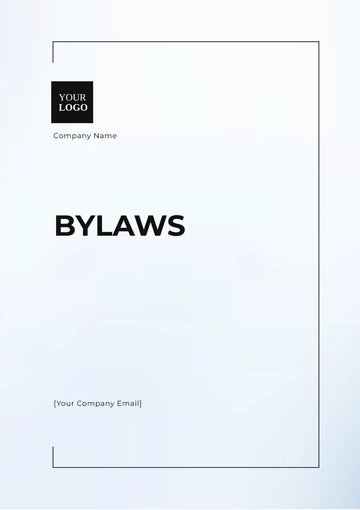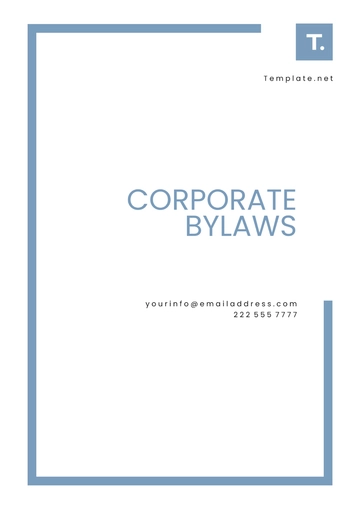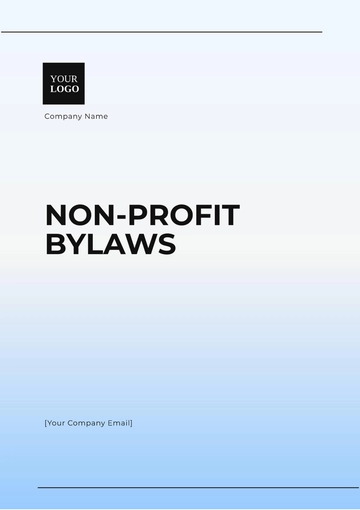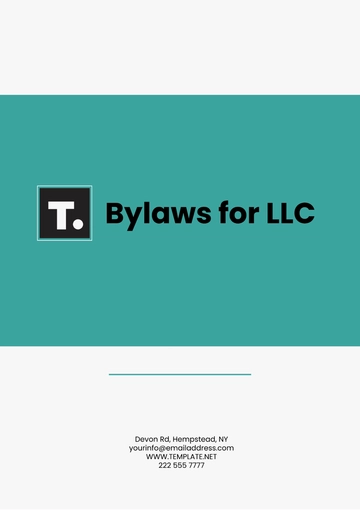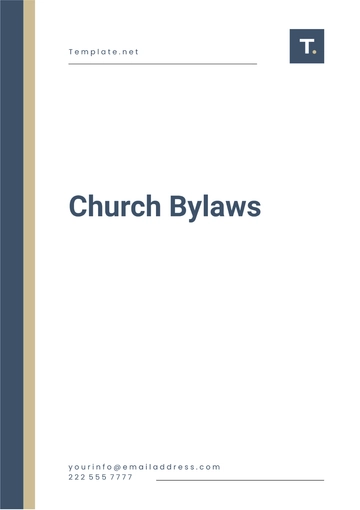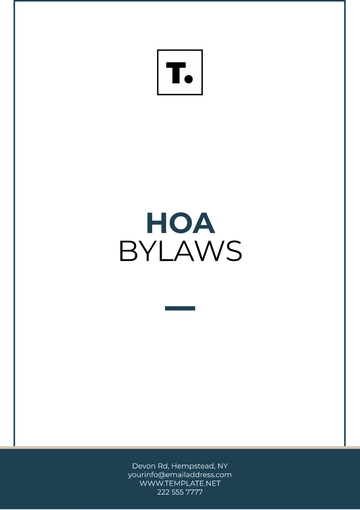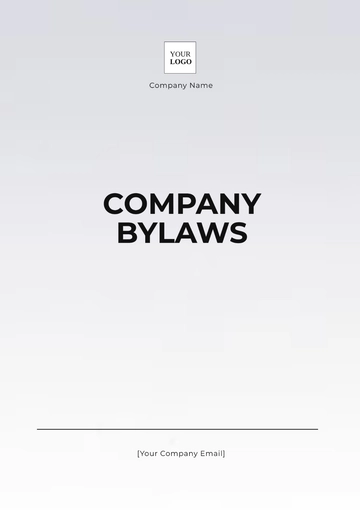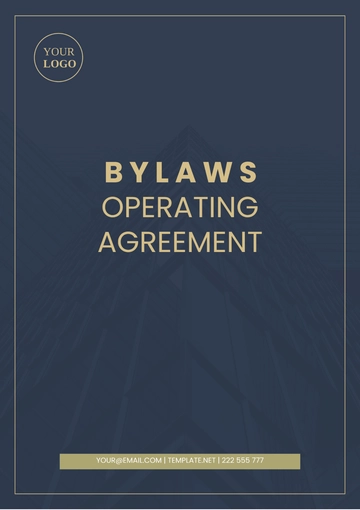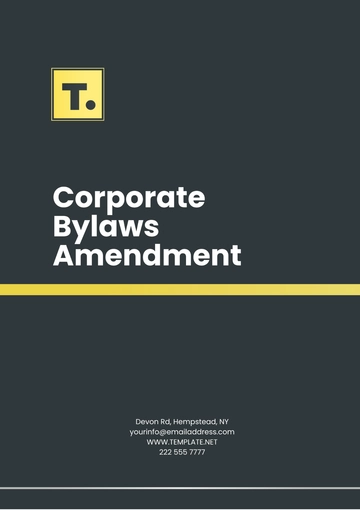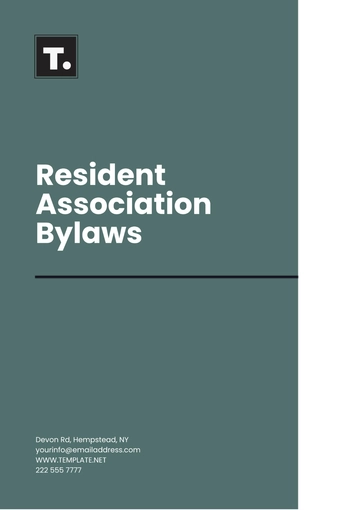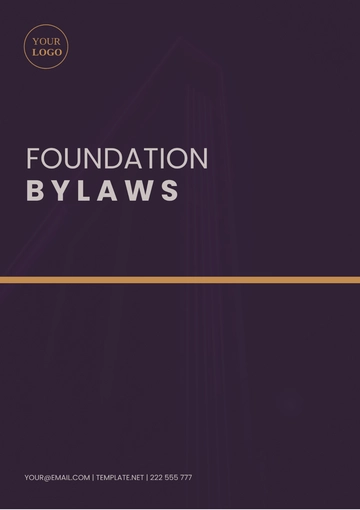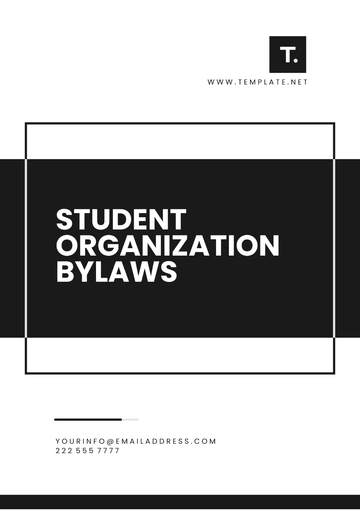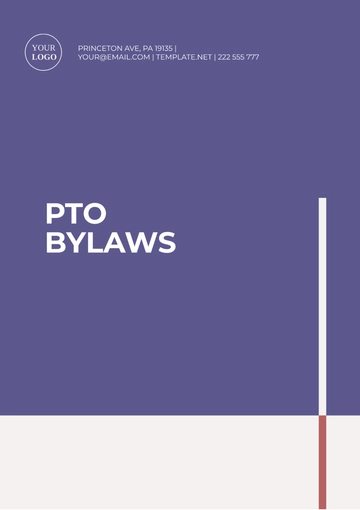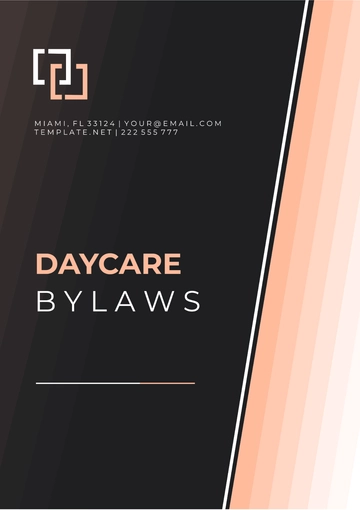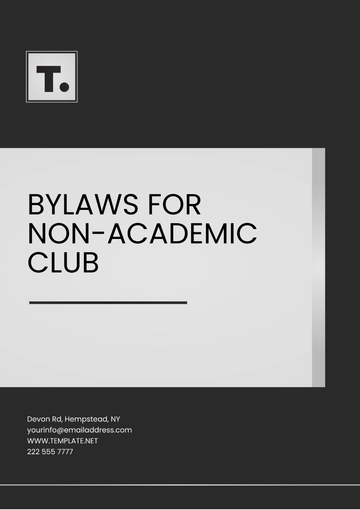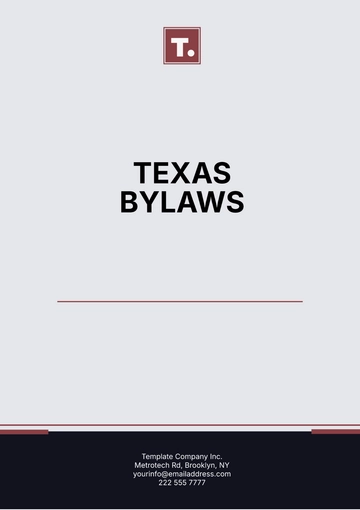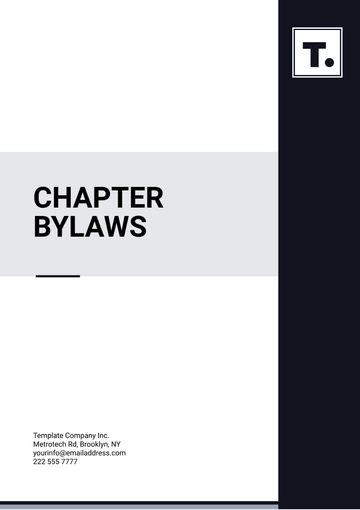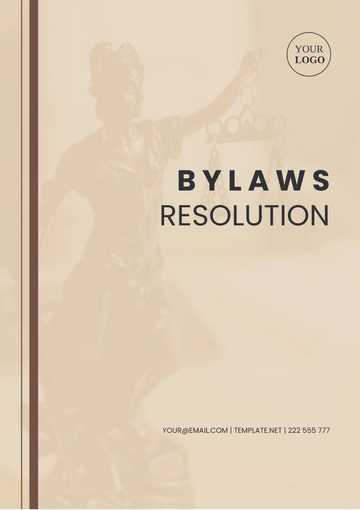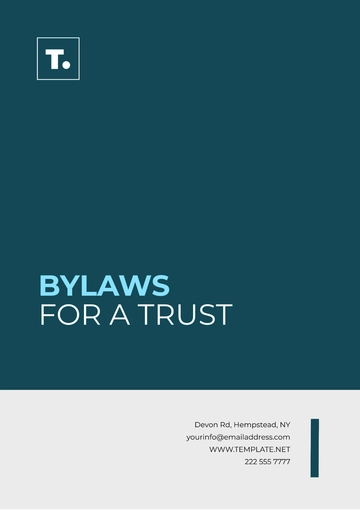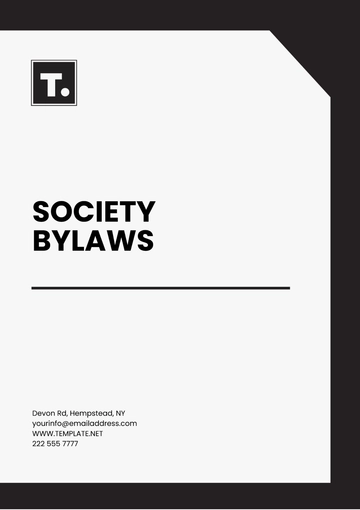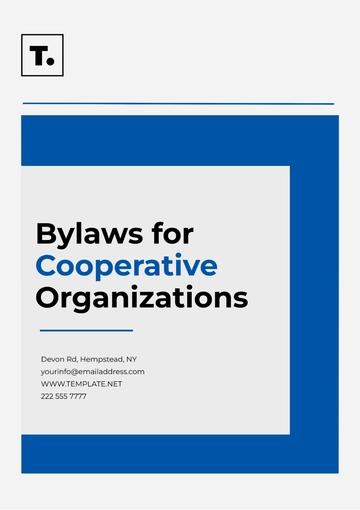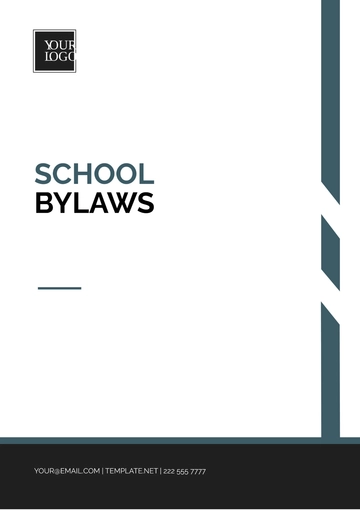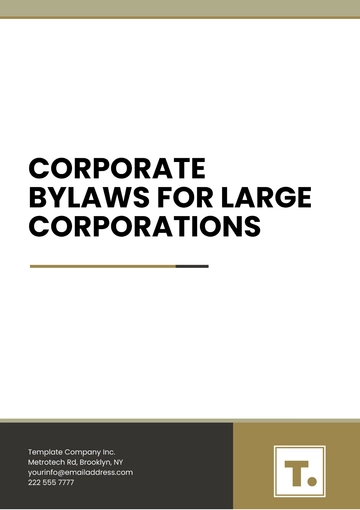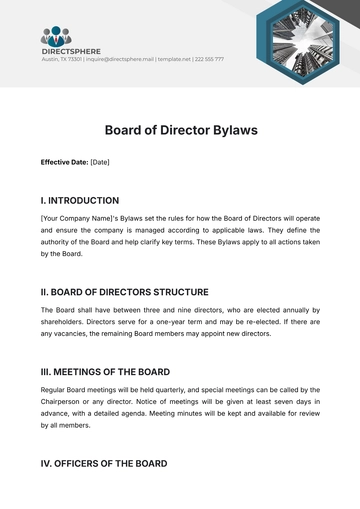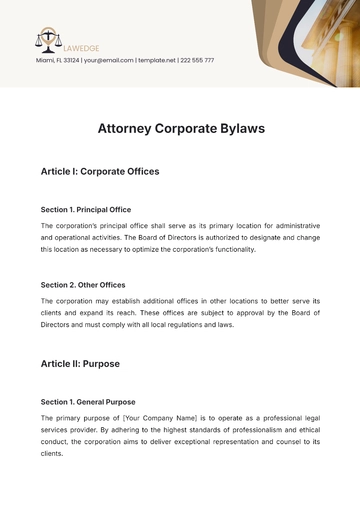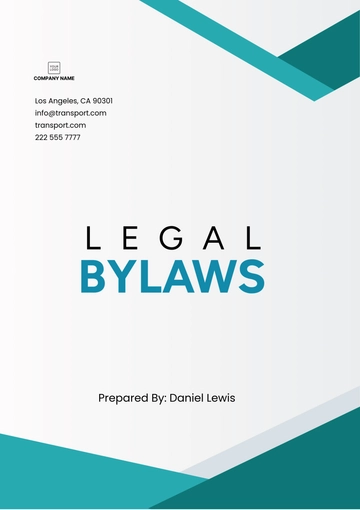Free Basic Bylaws
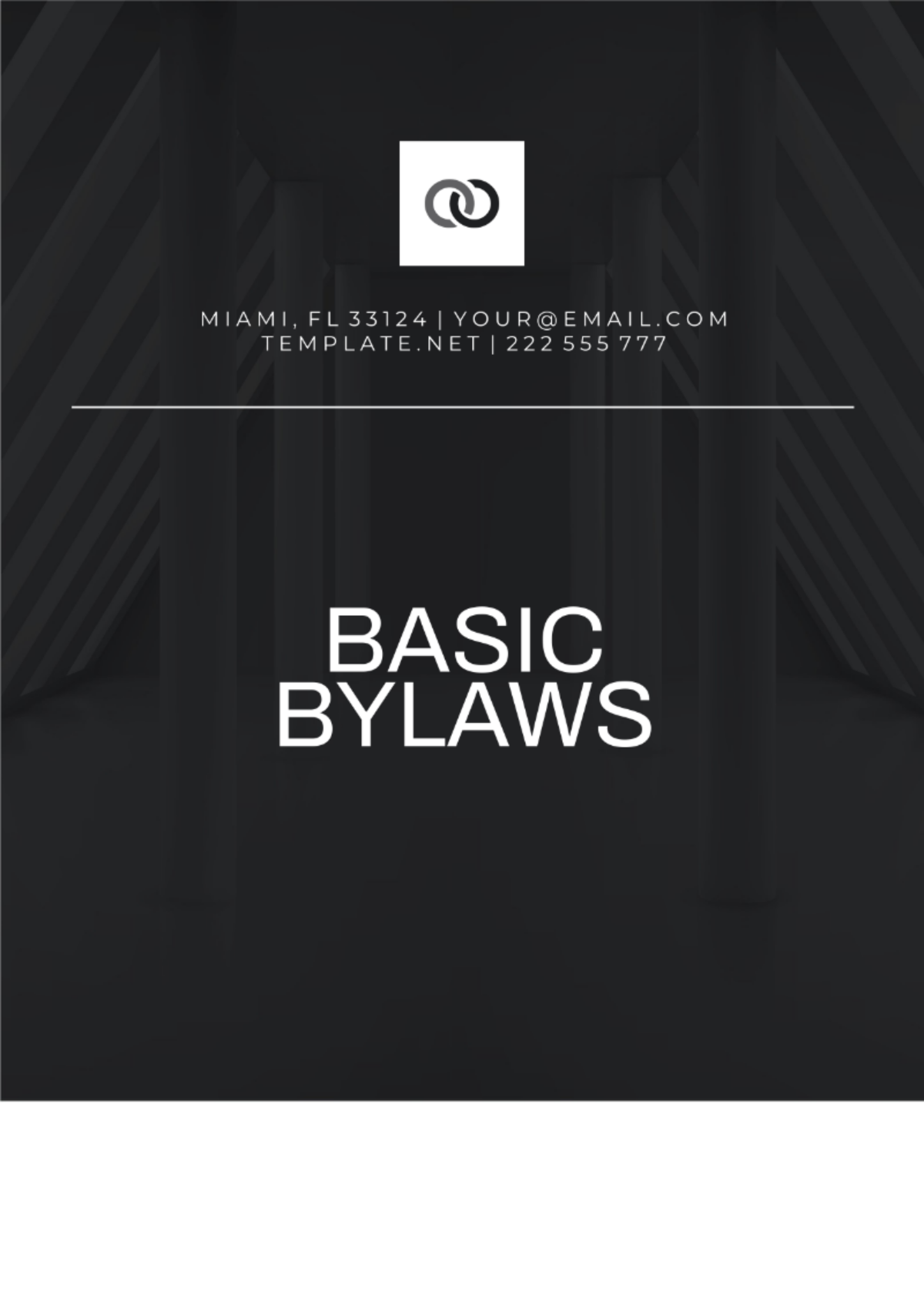
These Academic Governance Bylaws are instituted to establish a comprehensive framework for the governance of academic affairs within [YOUR COMPANY NAME]. These bylaws aim to promote a culture of excellence, integrity, and innovation in teaching, learning, and research.
The following articles delineate the various facets of academic governance, encompassing leadership roles, faculty rights, curriculum development, student policies, and the provision of academic resources and facilities.
Article I: Academic Leadership and Administration
Section 1: Office of the Academic Dean
1.1 The Academic Dean shall serve as the chief academic officer responsible for overseeing and advancing the academic mission of the college.
1.2 Responsibilities shall include strategic planning, resource allocation, and fostering a collaborative academic environment.
1.3 The Academic Dean may establish task forces and committees to address emerging academic issues and opportunities.
Section 2: Departmental Administration
2.1 Each academic department shall be led by a department chair responsible for administrative functions, faculty development, and program coordination.
2.2 Department chairs shall collaborate across departments to promote interdisciplinary initiatives and enhance the overall academic experience.
2.3 The Academic Affairs Committee, comprising department chairs and faculty representatives, shall advise the Academic Dean on matters pertaining to academic policies and initiatives.
Article II: Faculty Rights, Development, and Evaluation
Section 1: Academic Freedom
1.1 Faculty members shall enjoy academic freedom in research, teaching, and service.
1.2 The college shall actively promote and defend the principles of academic freedom, ensuring an environment conducive to open inquiry and expression.
Section 2: Professional Development and Evaluation
2.1 The college shall provide ongoing support for faculty professional development, including workshops, conferences, and research opportunities.
2.2 Faculty performance evaluations shall be conducted regularly, incorporating peer reviews, student feedback, and contributions to scholarship.
2.3 A Faculty Development Committee shall facilitate and oversee professional growth opportunities for all faculty members.
Article III: Curriculum Development, Assessment, and Accreditation
Section 1: Curriculum Development
1.1 The Curriculum Committee, comprised of faculty representatives, administrators, and external experts, shall oversee the development and modification of academic programs.
1.2 All curriculum proposals shall undergo a thorough review process, including consideration of alignment with institutional goals and industry relevance.
Section 2: Program Assessment and Accreditation
2.1 The Assessment and Accreditation Office shall coordinate regular program assessments to ensure continuous improvement and compliance with accreditation standards.
2.2 The college shall maintain transparency in the accreditation process, engaging faculty in self-study and external evaluations.
2.3 Findings from program assessments shall inform strategic planning and resource allocation.
Article IV: Student Academic Policies and Support Services
Section 1: Student Rights and Responsibilities
1.1 The college shall uphold and communicate clear policies regarding student rights and responsibilities.
1.2 A Student Academic Affairs Office shall oversee the implementation of academic policies and provide support services for students.
Section 2: Student Success Initiatives
2.1 The college shall develop and implement initiatives to support student success, including tutoring services, academic advising, and career counseling.
2.2 The Student Success Committee shall monitor and assess the effectiveness of student support services.
Article V: Academic Resources, Facilities, and Technology Integration
Section 1: Library and Learning Resources
1.1 The Library and Learning Resources Committee shall oversee the acquisition, organization, and dissemination of educational resources.
1.2 The college shall invest in digital resources and databases to enhance accessibility and information dissemination.
Section 2: Classroom Facilities and Technology Integration
2.1 The Facilities Management Department shall ensure well-maintained and technologically-equipped classrooms, laboratories, and lecture halls.
2.2 The Technology Integration Task Force shall evaluate and implement emerging technologies to enhance teaching and learning.
These Academic Governance Bylaws represent a commitment to academic excellence, student success, and continuous improvement. Regular reviews and updates shall be conducted to ensure the relevance and effectiveness of these bylaws in fostering an environment that nurtures intellectual growth and innovation within [YOUR COMPANY NAME].
Amendments to these bylaws shall be proposed, reviewed, and ratified in accordance with established governance procedures, ensuring the inclusivity and representation of all stakeholders in the academic community.
- 100% Customizable, free editor
- Access 1 Million+ Templates, photo’s & graphics
- Download or share as a template
- Click and replace photos, graphics, text, backgrounds
- Resize, crop, AI write & more
- Access advanced editor
